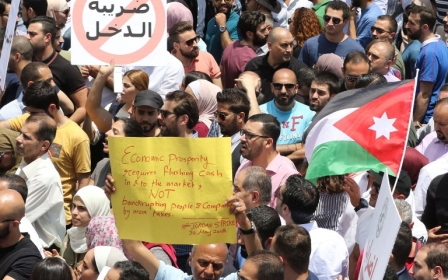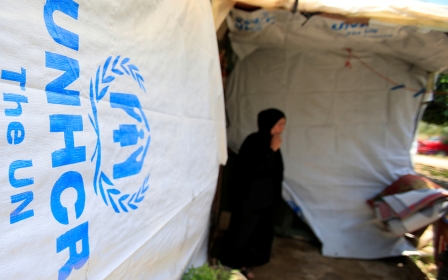Jordan MPs approve income tax bill that was amended after protests

Jordanian MPs on Sunday approved an IMF-backed income tax bill after amendments to a controversial draft of the proposed law that sparked a week of angry protests in the summer.
Thousands of Jordanians hit the streets in June to rally against austerity, rising prices and corruption, forcing the prime minister's resignation and the withdrawal of the bill, AFP reported.
The proposed law on income tax was the latest in a series of policies adopted to cut national debt after Amman secured a $723m loan from the International Monetary Fund in 2016.
A majority in the lower chamber approved a series of amendments in the 36-article bill that included raising family exemptions to mitigate its impact on middle-class income earners, Reuters said.
Jordan's Prime Minister Omar al-Razzaz warned the kingdom would pay a heavy price if parliament failed to approve the bill, a main plank of austerity measures to ease a fiscal crunch and spur stagnant growth hovering at around 2 percent in recent years.
Still, austerity measures tied to the IMF loan have seen the cost of basic necessities rise across the kingdom.
The original bill, which the government approved in June, raised taxes on employees by at least five percent, and on companies by between 20 and 40 percent.
These measures were left unchanged in the amended version approved on Sunday, according to state media.
The revised bill raises the threshold for households required to pay income tax to 20,000 Jordanian dinars ($28,000) from a previous ceiling of 18,000 for 2019.
The amended legislation also introduced exemptions of as much as 2,000 dinars per family for basic expenses including education and health, and 1,000 dinars per single person "applicable upon the delivery of receipts and invoices," state news agency Petra said.
The new bill was approved by the lower house of parliament and must be also approved by the Senate before being ratified by the king to become law.
Razzaz said the law promotes social justice by targeting the wealthy and combats long-time corporate tax evaders, but opposition MPs argue it will hurt the already stagnant economy and diminish middle-class incomes.
"The individuals who will be affected are the top 12 percent income earners, it won't affect middle and low-income earners," Razzaz said.
Earlier this year, Jordan increased a sales tax and scrapped a subsidy on bread as part of a three-year fiscal plan agreed with the IMF, which aims to cut public debt of $37bn, equivalent to 95 percent of the gross domestic product.
Economists told Reuters that Jordan's ability to maintain a costly subsidy system and a big bureaucracy was increasingly untenable in the absence of foreign capital inflows or injections of foreign aid, which have dwindled as the Syrian crisis has gone on.
With a lack of natural resources to boost state coffers, Jordan relies heavily on foreign aid and faces an unemployment rate of 18.5 percent.
Stability in Jordan is seen as fundamental to the region and in the wake of protests Amman was offered a $2.5bn aid package from three Gulf backers.
More than $1bn has already been deposited in the central bank by Kuwait, the United Arab Emirates and Saudi Arabia, a Jordanian government source said in October.
Stay informed with MEE's newsletters
Sign up to get the latest alerts, insights and analysis, starting with Turkey Unpacked
Middle East Eye delivers independent and unrivalled coverage and analysis of the Middle East, North Africa and beyond. To learn more about republishing this content and the associated fees, please fill out this form. More about MEE can be found here.




